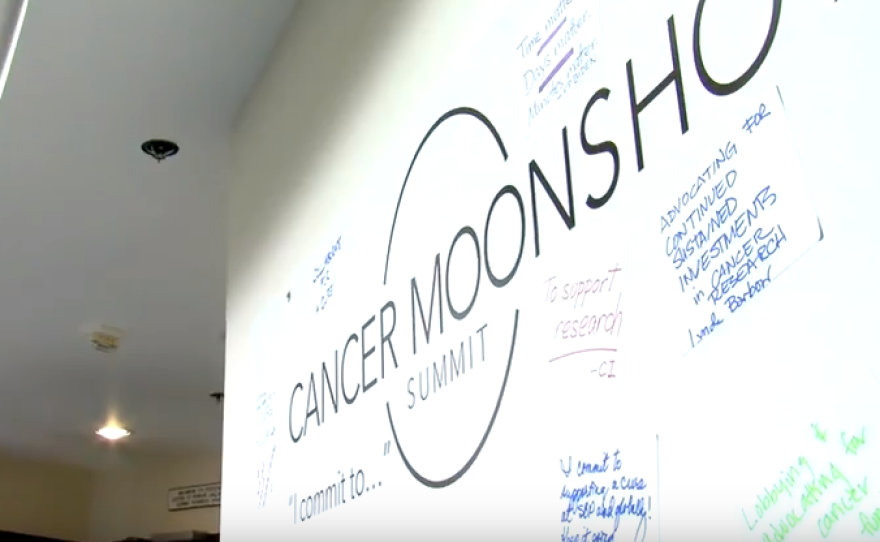Vice President Joe Biden, who lost his son Beau to brain cancer last year, has outlined plans to speed up cancer research and improve treatment for patients through a national "cancer moonshot."
San Diego cancer researchers, patients and biotech leaders gathered at the Sanford Burnham Prebys Medical Discovery Institute in La Jolla Wednesday to hear Biden speak from Washington, D.C. They also discussed local contributions toward the White House's goal of "ending cancer as we know it."
UC San Diego's Elena Martinez is on a panel of experts advising Biden. She said the vice president plans to push cancer researchers to collaborate and share data.
"Until we start sharing information and data more readily, we're not going to be able to tackle this problem," Martinez said.
Biden even said federal funding would be cut for researchers who don't report clinical trial data. UC San Diego was recently found to be one of the worst offenders in failing to publish clinical trial results.
As part of the project, the White House announced a long slate of efforts involving private and public organizations.
The Department of Veterans Affairs plans to use IBM's Jeopardy-winning computer Watson to pinpoint cancer-related genes among 10,000 patients. Other ideas include fast-tracking testing and FDA review for promising drugs and enrolling more patients in clinical trials.
Martinez said her major role as an advisory panel member is to speak on behalf of medically underserved communities. She said the soaring cost of cancer treatment is prohibitive for many ethnic and socioeconomic groups.
"Costs drive access," Martinez said. "Perhaps there's a new screening test for a particular cancer that's only accessible for people with insurance or the means to pay for it. That is a huge barrier that we hope to address."
This isn't the first time an administration has taken on the challenge of defeating cancer. And some experts say the $1 billion in funding the White House is hoping to secure won't be nearly enough to accomplish the goal.
The current administration's time is limited, and there's no guarantee Congress will approve the funding or that Obama's successor will continue with the project. But Martinez says excitement is building in the research community.
"During my academic life, I can't remember another event such as this," she said. "Having the vice president behind this initiative is extremely exciting."






